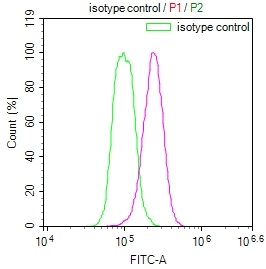CNIH3 Antibody
-
中文名称:CNIH3兔多克隆抗体
-
货号:CSB-PA005650GA01HU
-
规格:¥3,900
-
其他:
产品详情
-
Uniprot No.:
-
基因名:CNIH3
-
别名:CNIH3; Protein cornichon homolog 3; CNIH-3; Cornichon family AMPA receptor auxiliary protein 3
-
宿主:Rabbit
-
反应种属:Human,Mouse,Rat
-
免疫原:Human CNIH3
-
免疫原种属:Homo sapiens (Human)
-
抗体亚型:IgG
-
纯化方式:Antigen Affinity Purified
-
浓度:It differs from different batches. Please contact us to confirm it.
-
保存缓冲液:Liquid in PBS containing 50% glycerol, 0.5% BSA and 0.02% sodium azide
-
产品提供形式:Liquid
-
应用范围:ELISA,WB
-
Protocols:
-
储存条件:Upon receipt, store at -20°C or -80°C. Avoid repeated freeze.
-
货期:Basically, we can dispatch the products out in 1-3 working days after receiving your orders. Delivery time maybe differs from different purchasing way or location, please kindly consult your local distributors for specific delivery time.
-
用途:For Research Use Only. Not for use in diagnostic or therapeutic procedures.
相关产品
靶点详情
-
功能:Regulates the trafficking and gating properties of AMPA-selective glutamate receptors (AMPARs). Promotes their targeting to the cell membrane and synapses and modulates their gating properties by regulating their rates of activation, deactivation and desensitization.
-
基因功能参考文献:
- Study's convergent findings in humans and mice support CNIH3 involvement in the pathophysiology of opioid dependence, complementing prior studies implicating the alpha-amino-3-hydroxy-5-methyl-4-isoxazolepropionic acid (AMPA) glutamate system PMID: 26239289
- Significant upregulation of CNIH-3 mRNA expression was found in schizophrenia. PMID: 23103966
-
亚细胞定位:Cell junction, synapse, postsynaptic cell membrane; Multi-pass membrane protein.
-
蛋白家族:Cornichon family
-
组织特异性:Expression is up-regulated in dorsolateral prefrontal cortex of patients with schizophrenia (postmortem brain study).
-
数据库链接:
Most popular with customers
-
-
YWHAB Recombinant Monoclonal Antibody
Applications: ELISA, WB, IHC, IF, FC
Species Reactivity: Human, Mouse, Rat
-
Phospho-YAP1 (S127) Recombinant Monoclonal Antibody
Applications: ELISA, WB, IHC
Species Reactivity: Human
-
-
-
-
-



















